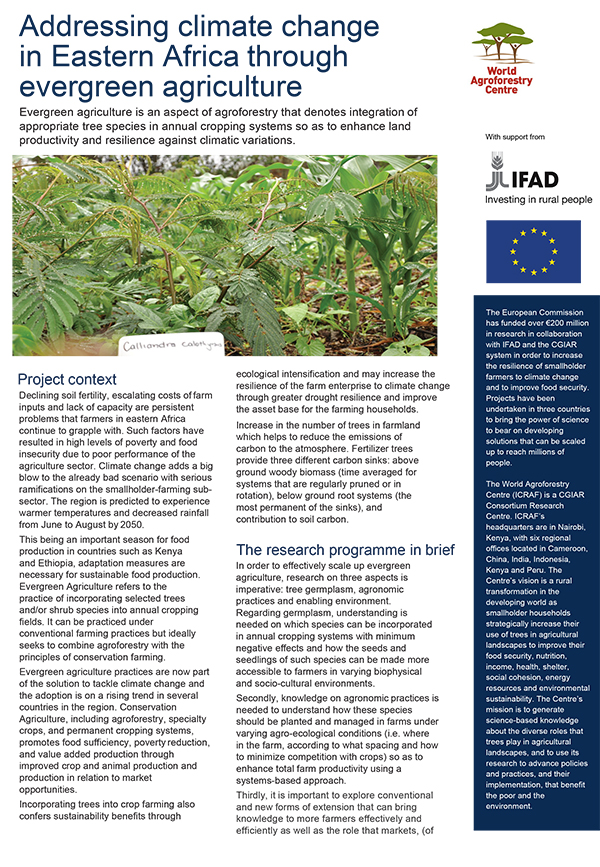Addressing climate change in Eastern Africa through evergreen agriculture
Addressing climate change in Eastern Africa through evergreen agriculture
November 2015
Declining soil fertility, escalating costs of farm inputs and lack of capacity are persistent problems that farmers in eastern Africa continue to grapple with. Such factors have resulted in high levels of poverty and food insecurity due to poor performance of the agriculture sector. Climate change adds a big blow to the already bad scenario with serious ramifications on the smallholder-farming subsector. The region is predicted to experience warmer temperatures and decreased rainfall from June to August by 2050. This being an important season for food production in countries such as Kenya and Ethiopia, adaptation measures are necessary for sustainable food production. Evergreen Agriculture refers to the practice of incorporating selected trees and/or shrub species into annual cropping fields. It can be practiced under conventional farming practices but ideally seeks to combine agroforestry with the principles of conservation farming. Evergreen agriculture practices are now part of the solution to tackle climate change and the adoption is on a rising trend in several countries in the region. Conservation Agriculture, including agroforestry, specialty crops, and permanent cropping systems, promotes food sufficiency, poverty reduction, and value added production through improved crop and animal production and production in relation to market opportunities.
